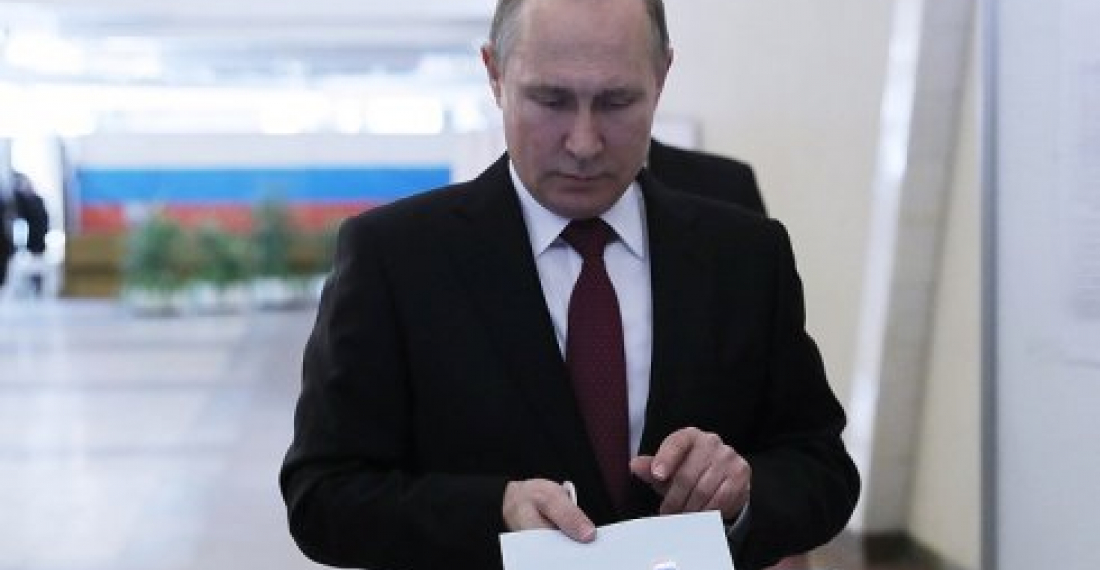Russians are voting to elect the next President of the Russian Federation.
Incumbent president Vladimir Putin cast his vote on Sunday morning at polling station number 2151 in the Russian Academy of Sciences on Moscow's Kosygina Street. Eight candidates are running for the highest office in the Russian Federation.
Apart from President Putin the other candidates are Pavel Grudinin, director of the Lenin State Farm (nominated by the Communist Party of Russia); TV personality and socialite Ksenia Sobchak (nominated by Civil Initiative); Sergey Baburin, head of the Russian People's Union party; Maxim Suraikin, chairman of the Central Committee of the Communists of Russia party; Boris Titov, chairman of the Party of Growth and Russian Presidential Envoy for Entrepreneurs' Rights; Grigory Yavlinsky, head of the Yabloko Party's federal political committee; Vladimir Zhirinovsky, leader of the Liberal-Democratic Party of Russia (LDPR).
There are more than 97,000 polling stations in eighty-five Russian regions spread over eleven time zones, and in Russian diplomatic missions overseas, with an electorate of around 110 million voters
The elections are being held within a tightly managed political framework which has seen some potential candidates barred from running, and with the media overwhelmingly slanted in favour of president Putin. Putin is expected to be elected easily but questions remain about how big the turnout will be, and what will be Putin's percentage of the vote.
source: commonspace.eu with agencies
photo: President Vladimir Putin casting his vote in Russian presidential elections on 18 March 2018 (picture courtesy of Tass news agency)






